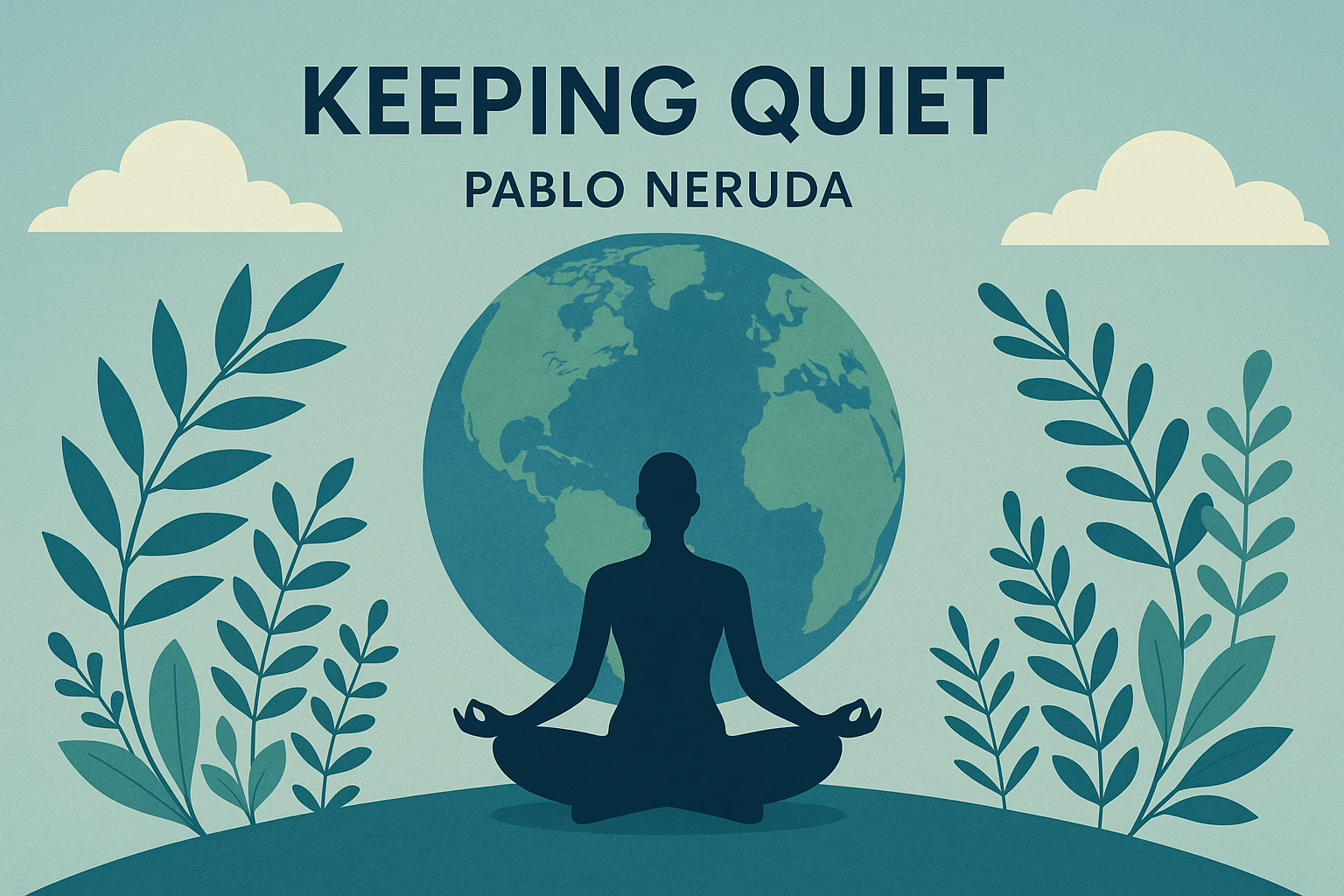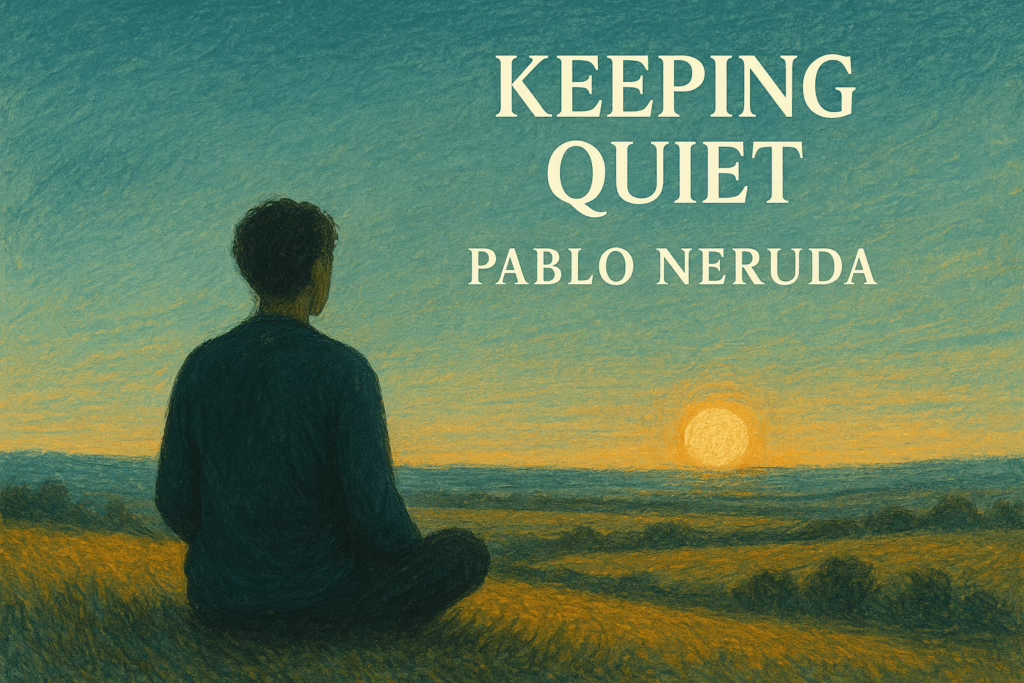Summary of “Keeping Quiet”
In Keeping Quiet, Pablo Neruda urges humanity to pause, reflect, and embrace silence for a moment. He suggests counting to twelve and keeping still, with no movement or speech, so that people across the world can experience a rare, peaceful moment of togetherness. This brief stillness would break the constant rush of life, allowing individuals to understand themselves and develop empathy for others.
Neruda imagines a world where harmful actions stop: fishermen would not kill whales, and labourers would have time to notice their own suffering. He emphasizes that he is not promoting total inactivity or death, but a thoughtful pause that encourages renewal. Like the Earth, which appears dead in winter but comes alive again, humans too can rejuvenate through quiet introspection. The poem ends with the poet gently asking everyone to remain quiet while he leaves, reinforcing the value of silence and self-awareness.

About the Poet – Pablo Neruda
Pablo Neruda (1904–1973), born Neftalí Ricardo Reyes Basoalto in Parral, Chile, is celebrated as one of the greatest and most influential poets of the twentieth century. Known globally for his powerful, evocative, and deeply humanistic writing, Neruda’s works span a wide emotional and thematic range—from love and longing to politics, nature, and the human condition. His poetry is distinguished by its clarity of imagery, musical language, and profound sensitivity to the world around him.
Neruda adopted his famous pen name early in life and went on to become a central figure in Latin American literature. Although he wrote prolifically across various genres, he is especially remembered for his lyrical poetry, which remains accessible to readers of all ages. As noted in your text, Neruda’s poems are “full of easily understood images which make them no less beautiful,” highlighting his ability to combine simplicity with depth in a manner few poets can achieve.
Apart from being a poet, Neruda was also a diplomat, a senator, and an outspoken political figure—roles that shaped much of his later writing. His poems often blend personal reflection with broader social and political concerns, reflecting his belief in poetry as a tool for awakening collective conscience.
His immense contribution to world literature was recognized internationally when he was awarded the Nobel Prize for Literature in 1971, one of the highest honours a writer can receive. The Nobel Committee praised him for his poetry’s “elemental power” and its ability to reach the hearts of readers everywhere.
In Keeping Quiet, Neruda’s voice becomes meditative and philosophical. He shifts from the passionate tone seen in his love poems to a quieter, more contemplative mode, urging humanity to embrace silence, introspection, and unity. This poem reflects his lifelong commitment to peace, human compassion, and the interconnectedness of all life on Earth.
Through his enduring legacy, Pablo Neruda continues to inspire readers to think, feel, and question deeply—not just about themselves, but about humanity as a whole.

Textual Questions and Answers
1. What will counting up to twelve and keeping still help us achieve?
Counting up to twelve and keeping still will help humans take a brief pause from their constant activity. This moment of total silence and stillness would allow people to reflect, develop self-awareness, and understand themselves better. It would also encourage unity, peace, and a sense of togetherness among people across the world.
2. Do you think the poet advocates total inactivity and death?
No, the poet clearly does not advocate total inactivity or death. He explicitly states, “What I want should not be confused with total inactivity. Life is what it is about; I want no truck with death.” He emphasizes that the stillness he seeks is temporary and meant for introspection—not an end to life.
3. What is the ‘sadness’ that the poet refers to in the poem?
The ‘sadness’ refers to humanity’s constant, restless activity that prevents people from understanding themselves. Because everyone is always in a rush, they fail to pause and reflect, which leads to a deep, unspoken sadness—the sadness of living without true self-awareness and of constantly harming themselves and others through thoughtless actions.
4. What symbol from Nature does the poet invoke to say that there can be life under apparent stillness?
The poet uses the symbol of the Earth, explaining that although in winter the Earth seems dead, it later proves to be alive again in spring. This natural cycle teaches us that stillness is not lifelessness; beneath apparent silence and inactivity, new life can quietly grow.



